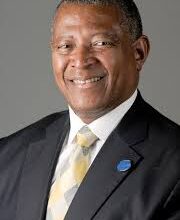City council votes to rename portion of Lapsley Street
Published 9:53 pm Tuesday, July 8, 2014
A civil rights debate that began years ago and heated up recently ended Tuesday, when the Selma City Council voted to rename a portion of Lapsley Street in honor of civil rights icon Amelia Boynton and her husband Sam Boynton.
The approved portion would start at First Avenue and end at J.L. Chestnut Boulevard. Though previous ideas proposed a renaming of Lapsley Street in its entirely, the approved portion stays within Ward 7 and avoids the Icehouse or Riverview historic districts.
Council president Corey Bowie said the renaming essentially amounts to an agreement. An ordinance still needs to be drafted and approved by the council before street signs are placed and the renaming becomes official, he said.
Following the vote, both Ward 7 Councilwoman Bennie Ruth Crenshaw and Ward 3 councilman Greg Bjelke said they were happy with the compromise.
“I think it was a good compromise; both sides gave a little,” Bjelke said after the council meeting “It honors Mrs. Boynton, but at the same time keeps the Lapsley name in the historic district. We would have been wiping out one person’s history and replacing it with another.”
Crenshaw initially wanted a renaming in its entirety, but said the Boynton family agreed with a partial renaming.
“I wanted to move not on what I felt, but what the family felt,” Crenshaw said after the meeting.
She said the street would be named Boyntons Street in honor of Sam and Amelia Boynton.
The renaming was first proposed during the early 2000s, but was revitalized by Crenshaw in late March.
During recent discussion, Bjelke and other council members expressed opposition to an entire renaming because of the value of the Lapsley family in Selma’s history.
The Lapsley family is often credited with bringing the railroad to Selma. The family also included artists, attorneys and missionaries.
Sam Lapsley traveled with William Henry Sheppard to the Congo River in Africa in the late 1800s. The pair worked in the African country for
almost three years until Sam Lapsley died because of an illness in 1892.
Throughout the process, council members were unanimously in favor of honoring the Boynton’s but differed about the extent of the renaming.
Amelia Boynton began campaigning for voting rights early in her life. She co-founded the Dallas County Voters League in 1933 and, with her husband, held multiple voter registration drives.
Following Sam Boynton’s death in 1963, she remained active in voting rights, welcoming large groups of congressmen and activists into her home.
Part of the compromise also includes a small tract of land at the intersection of First Avenue and Lapsley Street. Crenshaw said the land would be converted to a park and honor a number of civil rights activists that lived in the area, including the Boyntons, Richie Jean Jackson and students at R.B. Hudson.
“It’s an opportunity for people to know that civil rights history was made right there, in that neighborhood,” Crenshaw said. “I’m also looking forward to helping to get Mrs. Boynton’s house in a condition where it can be monumental to people that live in the area.”





